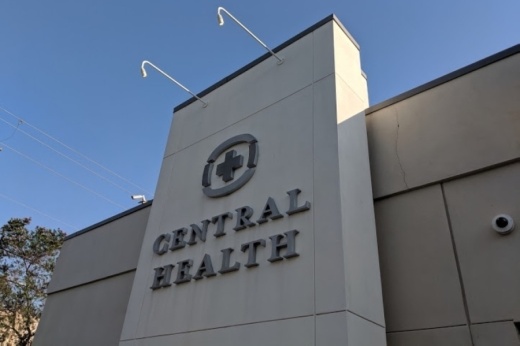The new tax rate—$0.100692 cents per $100 valuation—would cost the average homeowner an extra $56 per year. While commissioners raised concerns about the necessity of the hike, Central Health officials said the money is needed for its seven-year Healthcare Equity Plan.
“I’m puzzled why you are continuing to need tax increases when you appear to have so much extra money in the budget," Commissioner Brigid Shea said at a Sept. 12 meeting. “It’s just hard for me to understand this, and I’m getting these questions from members of the public as well.”
Commissioners will vote on the budget Sept. 19.
The break down
Central Health’s $744 million FY 2023-24 budget is an 18.4% year-over-year increase in spending and includes funding for the following:
- $23.6 million increase for direct health care services, which will fund 70 staff members for the new Rosewood-Zaragosa clinic, a new electronic medical records system, disease prevention programs and patient transportation and translation services
- $39.6 million increase to Hornsby Bend Health & Wellness Center, Del Valle Health & Wellness Center and the Sendero Affordable Care Act, which provide subsidies to 1,400 patients. Funding is also set aside to launch a “Central Health Navigation Center” intended to help patients find the right care.
- $18.4 million increase for mobile clinic teams for people experiencing homelessness, addictions medicine and diversion services
- $6.5 million increase for administration and new hires
The proposed budget also includes a last-minute $7 million in emergency funding to help stave off layoffs at Integral Care—the county’s largest mental health care provider—as it approved 48 layoffs and dozens of other position cuts amid a budget shortfall.
“But our community has very real health care problems and a homelessness crisis now—today—and Central Health has both the mission and the means to help,” Mayor Kirk Watson said in a Sept. 5 newsletter. “That would prevent layoffs and prevent a reduction in important services.”
The context
Central Health President and CEO Mike Geeslin said he wants to “bust up some of the myths” behind the district's growing contingency reserves, which have come under fire from local human rights groups and spurred a performance audit.
Central Health’s contingency reserves sat at $23.3 million in 2020 and have grown to almost $400 million—money Geeslin said is needed to support the district's Healthcare Equity Plan, which includes over 150 projects.
Zooming out
A large chunk of Central Health's increased budget asks are tied to its plans to expand direct services for low-income residents.
Previously, Central Health funded much of that work through Ascension Seton; however, both entities filed lawsuits against each other in January, and Central Health has cited a 21% decline in patients served by Ascension Seton since the partnership began in 2013.





